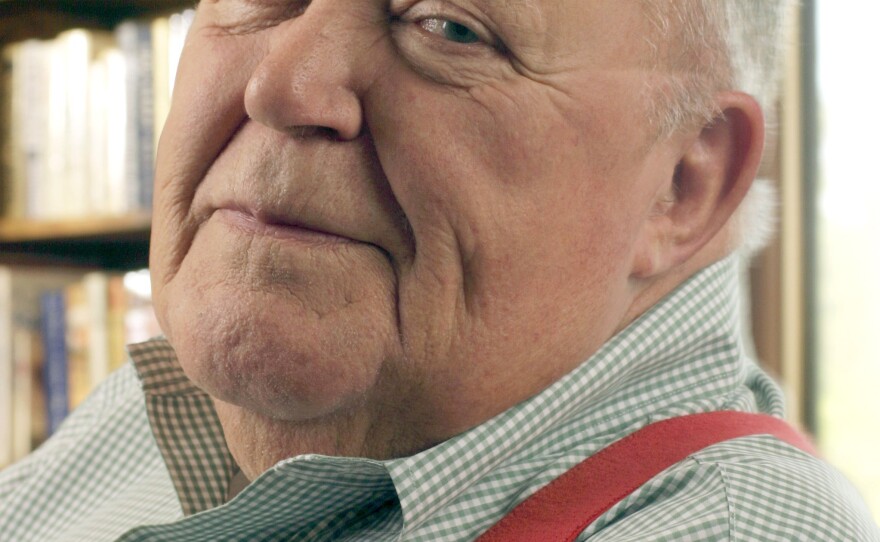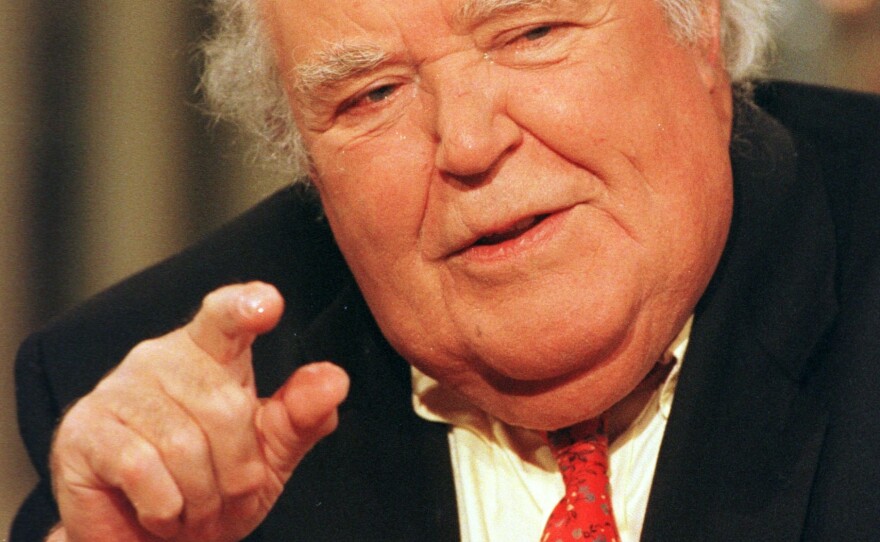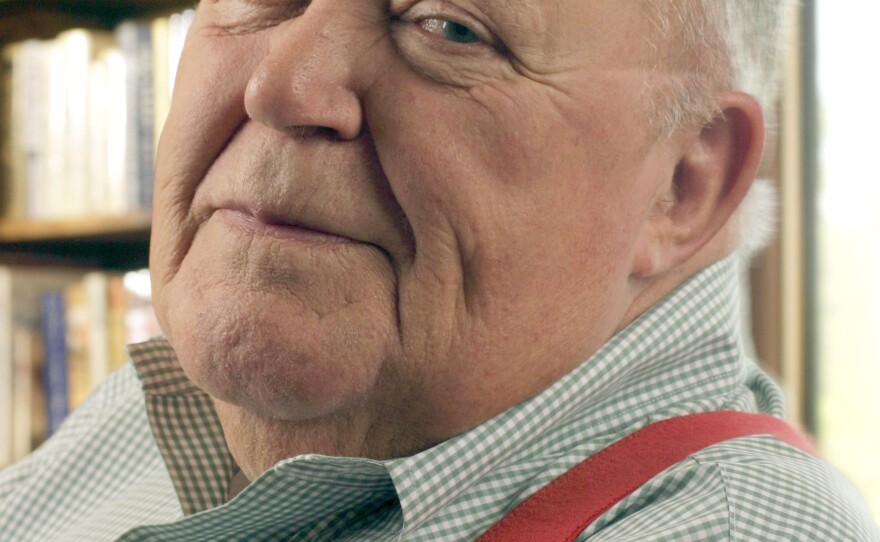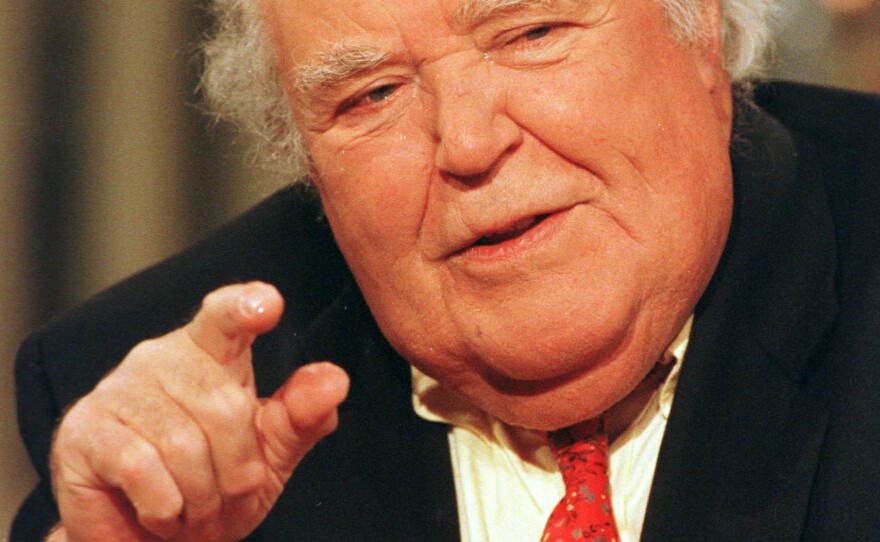


Political reporter Jack Germond smoked and loved martinis and red wine and fine food and betting on horses -- he lived life large and didn't suffer phonies.
But here's the thing about Germond, who died Wednesday at age 85: He liked politicians. That's something you don't find much among reporters today.
"By and large, I find that, first of all, most politicians have something -- some public purpose -- they want to accomplish," he told NPR in 1999. "They are not greedy, as people think they are. Most of them can make more money doing something else. You may not agree with their public purpose, but they have one."
Germond was born in Boston but also lived in New Jersey and the South as his father bounced from job to job. He was an editor at his high school yearbook and newspaper in Baton Rouge, La. After college and journalism school, he took jobs at a series of small city newspapers.
Then, as a political writer for the Gannett newspaper chain, Germond became a "boy on the bus" -- in Timothy Crouse's famous phrase -- one of the reporters who helped to determine presidential winners and losers as the parties lost their grasp over big-time politics.
Walter Mears of The Associated Press, who was a rival and friend, said Germond knew politicians from the precinct captains to presidents.
"It was the era of the typewriter and the payphone and primitive tools, by the lights of people who drink their Evian water now -- and not the libations that Jack and Jules and I used to close the day with," Mears said.
"Jules" is Jules Witcover, then a columnist for Newhouse newspapers. In the 1970s, Witcover and Germond ended up writing a column together, first for the now defunct Washington Star and then The Baltimore Sun.
Germond's second wife, Alice, was prominent in the Democratic National Committee, and Germond's own liberalism became more apparent as a commentator, especially on TV.
Germond would battle for more than a decade with the conservative political talk show host John McLaughlin. It was a love-hate relationship -- with an emphasis on the latter.
Germond became famous around the country -- even spoofed on Saturday Night Live -- yet he ultimately quit The McLaughlin Group, saying he had done it for the money.
But Witcover says there was something that rang true -- both to viewers and politicians.
"He could be very, very tough -- not simply on the television screen, but in an interview," Witcover says. "But he could then go out and have a drink or two -- or more than a few -- with the same politicians and walk away feeling good about himself and having them feel good about him. It was quite a talent."
Germond titled his 1999 memoir Fat Man in a Middle Seat, and he signed a copy to a newspaper colleague with "another slave to the Sun's whim."
He retired at the outset of 2001, telling Bob Edwards on NPR's Morning Edition that he could no longer take campaigns driven by focus groups and handlers and the men in suits keeping him at a distance from the politicians themselves.
"I got sick of politics, Bob," he said. "I particularly got sick of these two candidates this year. You know, you get to the point -- you know, you're 72 years old and you're covering George W. Bush and Al Gore and you say, 'How do I explain that to my grandkids?' I mean, that's terrible."
After retiring -- the slave to no one else's whim -- he spent a lot of time with his wife and family, as well as at the racetrack and in completing a long-planned novel shortly before his death.
Copyright 2013 NPR. To see more, visit www.npr.org.






